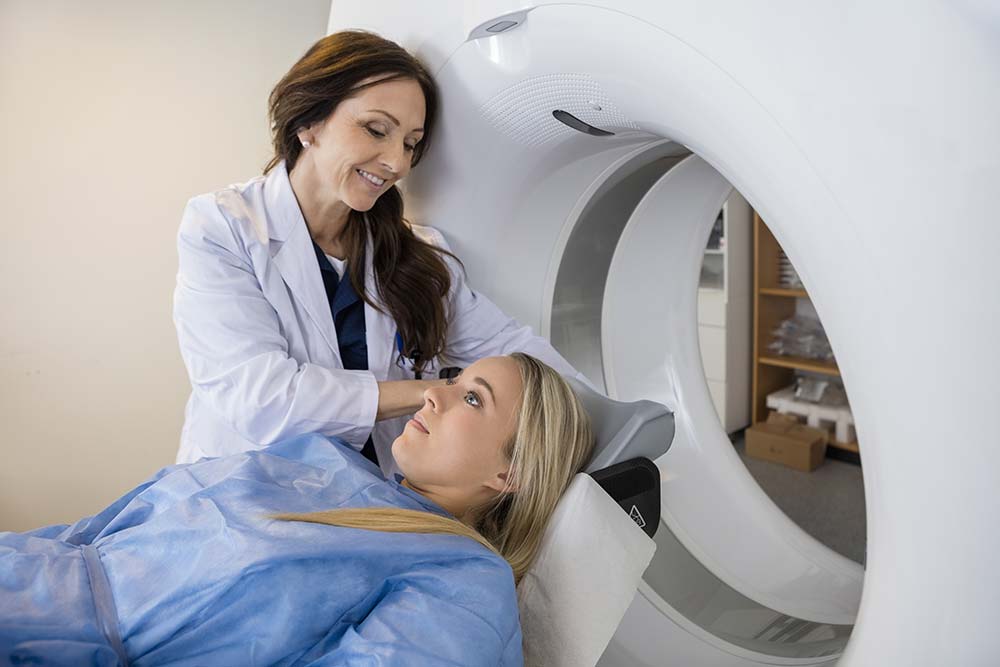
How Long Does an MRI of the Brain Take?
If you’re wondering how long an MRI of the brain takes, you’re in the right place! At medmo.com, we’re here to give you all the information you need about medical procedures.
First, it’s important to understand what an MRI is. MRI stands for magnetic resonance imaging, and it’s a test that uses a powerful magnet and radio waves to produce detailed images of the inside of your body. An MRI of the head can give doctors important information about your brain, eyes, ears, and nerves.
To have an MRI, you’ll lie on a table that’s then moved into the MRI machine. The test is usually done to check for problems such as tumors or infection, or to assess symptoms of diseases like multiple sclerosis or stroke. In most cases, you don’t need to do anything special to prepare for an MRI of the head. However, if you get nervous in tight spaces, you may be given medication to help you relax. Be sure to let your doctor know if this is the case, and make sure you have someone to take you home if you’re given medication.
You’ll be asked to lie still on the table while the machine takes images during the test. You may be given earplugs or headphones to help reduce the machine’s noise, including tapping, thumping, or snapping sounds. The technologist performing the test will be able to see and talk to you through a window and will be able to hear you through an intercom.
So, how long does an MRI of the brain take? The test typically takes 30 to 60 minutes, although it can take up to two hours in some cases. You may be given a contrast material, which is a dye that’s injected into your arm through an IV, to help highlight certain areas of your body and make the images clearer. While you shouldn’t feel any pain during the MRI, you may feel tired or sore from lying in one position for a long time. If you’re given a contrast material, you may feel some coolness when it’s injected into your IV. In rare cases, you may experience warmth in the area being imaged, nausea, vomiting, headache, dizziness, pain, burning, or breathing problems. Be sure to let the technologist know if you have any of these symptoms.
Are there any risks to having an MRI of the head? The magnet used in the MRI is very powerful, and it may affect any metal implants or other medical devices you have. You may be given contrast material that contains gadolinium, but most people find that the benefits of using this material outweigh the risks. However, if you have kidney problems or are pregnant, tell your doctor. There’s also a small risk of an allergic reaction to the contrast material, but most reactions are mild and can be treated with medication. If you’re breastfeeding and have concerns about the safety of the contrast material, talk to your doctor. Most experts believe that very little of the dye passes into breast milk, and even less is passed on to the baby. If you’re still concerned, you can stop breastfeeding for up to 24 hours after the test and give your baby stored breast milk.
After the test, you’ll probably be able to go home right away. You can return to your normal activities immediately, but be sure to follow any aftercare instructions your doctor gives you. This may include making follow-up appointments and calling your doctor or nurse advice line with any questions or concerns.
Overall, an MRI of the brain is a safe and effective way to get detailed images of your brain and surrounding structures. While the test can take anywhere from 30 minutes to two hours, it’s a relatively quick and painless way to get important information about your brain health. If your doctor has recommended an MRI of the head, you can trust that it’s a reliable and non-invasive way to get the answers you need.
If you have any questions or concerns about the test, don’t hesitate to ask your doctor or the technologist who performs the MRI. They’ll be happy to answer your questions and help you feel more comfortable and informed about the process.
So, to sum it up, an MRI of the brain typically takes 30 to 60 minutes, although it can take up to two hours in some cases. It’s a safe and painless way to get detailed images of your brain, and it can provide valuable information about your overall brain health. If you have an upcoming MRI of the head, remember to ask your doctor any questions you may have and to follow their aftercare instructions to ensure the best possible outcome.
Ready to get started?
Here’s what you’ll need to schedule an appointment
1. Imaging referral / prescription
2. Your contact information
3. Insurance OR card information


